- Austausch & Vernetzung
- Wissen & Lernen
- Advocacy
- Unsere Themen
Mit der Future of Global Health Initiative (FGHI) haben sich vor etwas mehr als einem Jahr verschiedene Vertreter:innen verschiedener Regierungen, NGOs und Stiftungen einen Prozess begonnen, der die globale Gesundheitsarchitektur vereinfachen und einheitlicher ausrichten soll. Dahinter stehen einige Geberländer wie auch einige afrikanische Länder. Nun liegt mit der Lusaka Agenda ein erster Meilenstein vor.
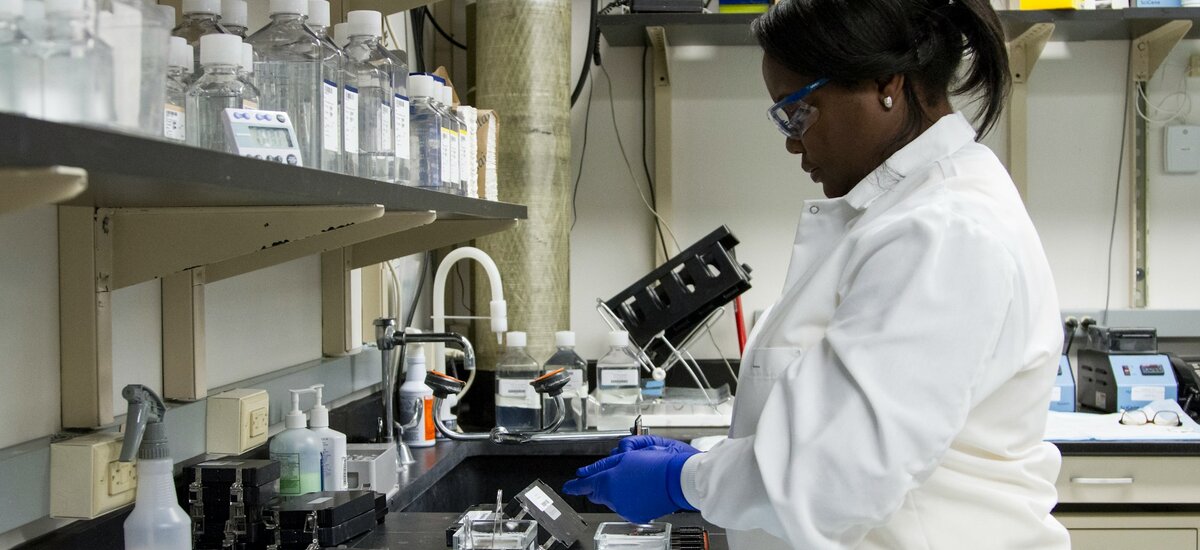
Die Initiative hat mit der im Dezember verabschiedeten Lusaka Agenda einen ersten Meilenstein erreicht, mit dem 5 Veränderungen (Key Shifts) definiert werden. Veränderungen, die den Weg zu einem langfristigen zu erreichenden Ziel ebnen sollen, das in durch die Regierungen selbst finanzierten Gesundheitssystemen und einer umfassenden Gesundheitsversorgung (UHC) für alle besteht. Direkte Adressaten der Agenda sind folgende Gesundheitsinitiativen: Gavi, Global Fund, Global Financing Facility for Women, Children and Adolescents (GFF). Weiter könnten laut der Agenda einbezogen werden: Coalition for Epidemic Preparedness Innovations (CEPI), Unitaid und FIND.
In den Steuerungsbehörden dieser Organisationen soll folgende fünf Veränderungen vorangetrieben werden: die Stärkungen der Gesundheitssysteme durch Förderung der Basisgesundheitsversorgung, Übernahme einer befördernden Rolle von selbstfinanzierten Gesundheitssystemen, gemeinsame Anstrengungen für mehr Gerechtigkeit in der Gesundheitsversorgung, strategische und operationelle Kohärenz und schliesslich Koordination der Forschungs- und Entwicklungsagenda und der Entwicklung lokaler Produktionskapazitäten für Gesundheitsprodukte.
Wer die Entwicklungen in der globalen Gesundheit verfolgt und die Fragmentierung der Landschaft beklagt, muss die Initiative eigentlich begrüssen. Bessere Zusammenarbeit zwischen diesen gewichtigen Gesundheitsinstitutionen ist höchst wünschenswert – nicht zuletzt mit Blick auf die Gesundheitsversorger:innen in ressourcenschwachen Ländern, die sich mit einer Vielzahl von unterschiedlichen Bewerbungsprozessen, Evaluations- und Rechenschaftssystemen dieser Organisationen herumschlagen müssen.
Es ist aber auch Skepsis angebracht: Es ist nicht der erste Versuch solcher Alignment-Prozesse – und viele davon sind versandet. Zudem muss die Initiative auch vor dem Hintergrund gesehen werden, dass der Druck auf die öffentlichen Finanzen der Geberländer steigt und bereits einige gewichtige Einsparungen in der internationalen Zusammenarbeit vorgenommen wurden. Sollte die FGHI letztlich nur ein Mittel sein, um Sparprogramme gegenüber jener Gesundheitsinitiativen abzufedern, könnte sich die Initiative letztlich negativ auf die globale Gesundheit auswirken.
Martin Leschhorn Strebel
Netzwerk Medicus Mundi Schweiz
E-Mail
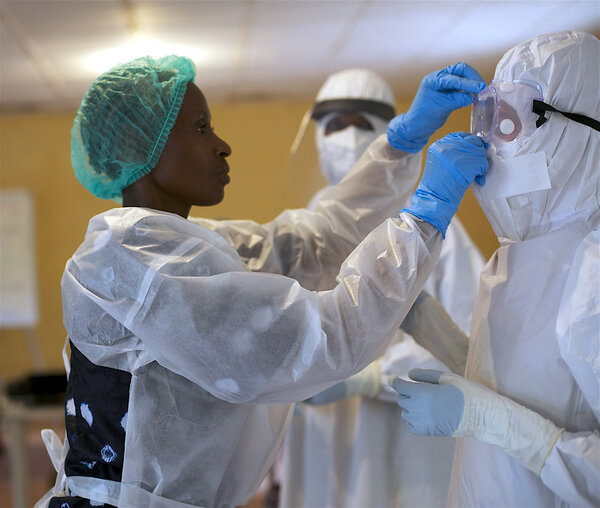
"Over the last two decades, global health initiatives (GHIs) have contributed to enormous progress in protecting lives and improving the health of people globally, while also contributing to global public goods, strengthening global health security, and improving pandemic preparedness and response. In doing so, they have established new models of partnership and alliances that have paved the way for new ways of working and addressing equity. However, important changes in health needs, financing and governance require a renewed and resolved vision for global health to deliver sustainable impact. The need for strong and resilient health systems that can adapt to emerging threats such as climate change and conflict, and concurrently maintain coverage for existing health needs, has never been clearer."
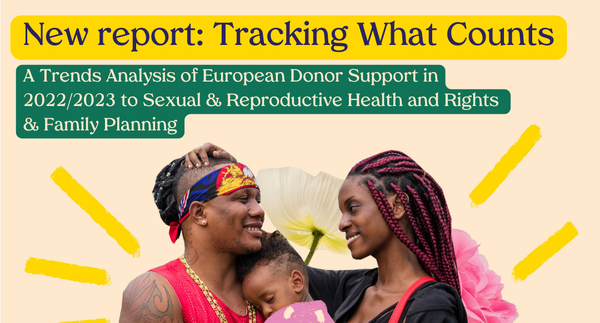
Medienmitteilung vom 30. Januar 2024
Die Schweiz zählt zu den 10 europäischen Ländern, die 2022 im Rahmen der internationalen Zusammenarbeit mehr Geld in den Bereich der sexuellen und reproduktiven Gesundheit und Rechte (SRGR) investiert haben als im Vorjahr. Sie gab 2,1 % der öffentlichen Entwicklungshilfe für SRGR aus und steht damit an 8. Stelle von insgesamt 13 untersuchten europäischen Ländern. Dies ist das Resultat des heute veröffentlichten Berichts «Tracking What Counts» von «Countdown 2030 Europe». SEXUELLE GESUNDHEIT SCHWEIZ (SGCH) begrüsst als Partnerorganisation von «Countdown 2030 Europe» in einer Medienmitteilung das Engagement der Schweiz, fordert sie aber dringendst auf, dieses angesichts aktueller humanitärer Krisen und Herausforderungen künftig noch zu verstärken. Denn allein um den globalen Bedarf an sicheren Verhütungsmitteln bis 2030 zu decken, müssten die Investitionen europäischer Geberländer laut UNFPA schätzungsweise verachtfacht werden.

"Der Rotkreuzrat hat an seiner Sitzung vom 24. Januar 2024 Nora Kronig Romero einstimmig zur neuen Direktorin des Schweizerischen Roten Kreuzes (SRK) gewählt. Die Leiterin Abteilung Internationales im Bundesamt für Gesundheit (BAG) wechselt voraussichtlich per 1. Mai 2024 zum SRK. Nora Kronig Romero ist Vizedirektorin und Mitglied der Geschäftsleitung des Bundesamtes für Gesundheit (BAG), wo sie die Abteilung Internationales leitet. In dieser Funktion ist sie zuständig für die Gesundheitszusammenarbeit mit den Nachbarstaaten, der EU und in internationalen Organisationen, insbesondere in der Weltgesundheitsorganisation WHO."

Der 17-jährige Hassan* ist einer von Tausenden minderjährigen Afghanen, die ihr Land verlassen müssen und in der Schweiz Schutz suchen.
"Erzählt Hassan von seiner Flucht, muss die Übersetzerin manchmal mit den Tränen kämpfen, bevor sie seine Worte von Farsi ins Deutsche wiedergibt. Seine Flucht beginnt im Sommer 2021, als er ungefähr 15 Jahre alt ist. An jenem Sonntag, dem 15. August, an dem die Taliban die Macht im Land übernehmen. Hassans Familie versucht nach Kabul zu flüchten. «Wir fuhren im Auto, hatten alle Papiere bei uns und dachten, wir könnten nach Amerika fliegen». Sein Vater hat schliesslich für die Regierung gearbeitet."
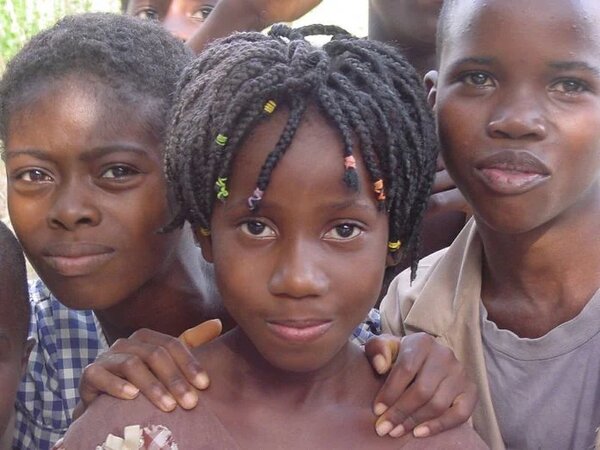
Concerted Efforts to Tackle Poverty-Related Diseases. By Jürg Utzinger
"Today, we commemorate World NTD Day for the fourth time. In this article, I look back over the past 25 years and highlight key developments that have brought neglected tropical diseases (NTDs) out of the shadows and into the forefront of global health. And I look ahead in the spirit of this year’s theme: “Unite. Act. Eliminate”.
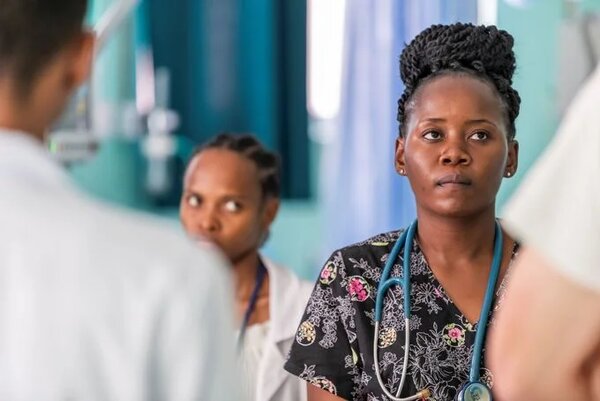
"Cervical cancer is the leading cause of cancer related deaths among women in sub-Saharan Africa. Women living with the human immunodeficiency virus (HIV) are six times more likely to develop cervical cancer than those who are HIV negative. To tackle this issue, Swiss TPH together with partners developed the Cervical Cancer Prevention and Care Cascade – a framework to enhance cervical cancer screening programmes for women living with HIV in sub-Saharan Africa."
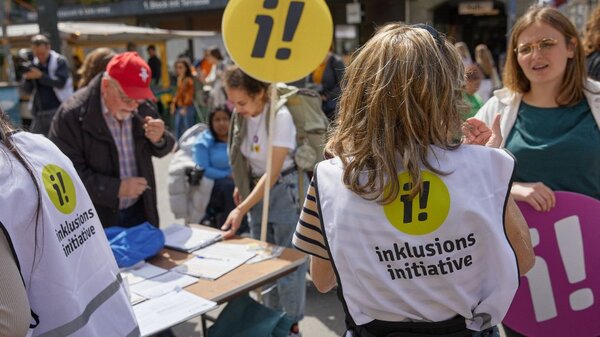
"Handicap International unterstützt die Inklusions-Initiative für eine Schweiz ohne Diskriminierung. Beteiligen Sie sich an diesem gemeinsamen Prozess und unterschreiben Sie die Initiative. Machen wir die Schweiz zu einem Land, in dem alle Menschen, unabhängig von ihrer Behinderung, die Möglichkeit haben, ein erfülltes Leben zu führen, um eine gerechtere und inklusivere Gesellschaft zu schaffen. In der Schweiz leben rund 1,7 Millionen Menschen mit Behinderungen. Diese Menschen sind tagtäglich mit Hindernissen konfrontiert, die sie daran hindern, vollumfänglich am gesellschaftlichen Leben teilzuhaben. Trotz internationaler Verpflichtungen ist unsere Gesellschaft in vielerlei Hinsicht noch nicht inklusiv."

"Auch im Jahr 2023 haben wir unser Engagement für die Schutzbedürftigsten fortgesetzt. Mit Ihren Spenden haben Sie dazu beigetragen, mehr als 2,5 Millionen Menschen zu unterstützen. Mehr als 500’000 Menschen erhielten Reha-Massnahmen. Dank Ihnen können mehr als 400’000 Kinder mit Behinderung in die Schule gehen. 4 Millionen Quadratmeter von Blindgängern verseuchtes Land wurden der Bevölkerung zurückgegeben."
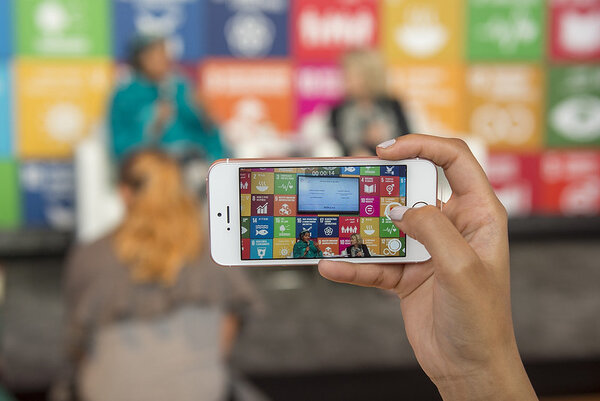
Eine Analyse von Nina Vladović, HEKS; Lisa Joanne Bissegger, Frieda – die feministische Friedensorganisation und Martin Leschhorn Strebel, Medicus Mundi Schweiz
"Die Dekolonisierungsdebatte ist auch für die Umsetzung der Agenda 2030 von Relevanz: Die SDGs sollten in ihrer Gesamtheit einen Beitrag leisten, um Gleichheit und Chancengerechtigkeit (Equity) weltweit zu stärken. Gleichzeitig kann keines der SDGs erreicht werden, wenn Gleichheit und Chancengerechtigkeit (SDG 10) nicht ins Zentrum der Aktivitäten gerückt werden. Vor diesem Hintergrund müsste der Dekolonisierungsanspruch im Herzen der Agenda 2030 liegen. Tut sie das auch?"
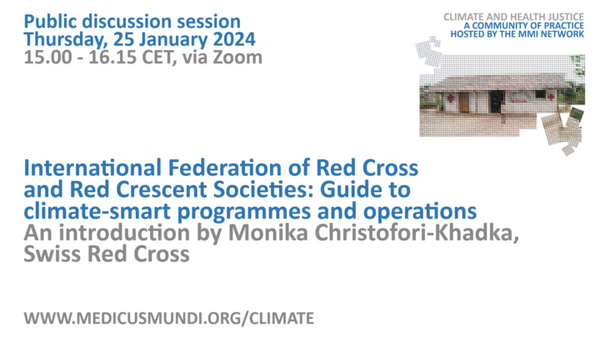
Recording of the session
“Climate-smart means using climate information across timescales in designing and/or adjusting all our programmes and operations. In doing so, programmes and operations ensure that, at a minimum, they do not place people at increased risk in the future considering likely new climate extremes and growing vulnerabilities. In addition, this approach offers the initial steps in the Climate Action Journey for the National Societies to identify locally led adaptation needs and support communities to anticipate, absorb and adapt to climate change.” (quoted from IFRC website). At this open discussion meeting, Monika Christophori-Khadka, Swiss Red Cross, introduced the IFRC Guide to climate-smart programming and operations, its tools and application in practice."
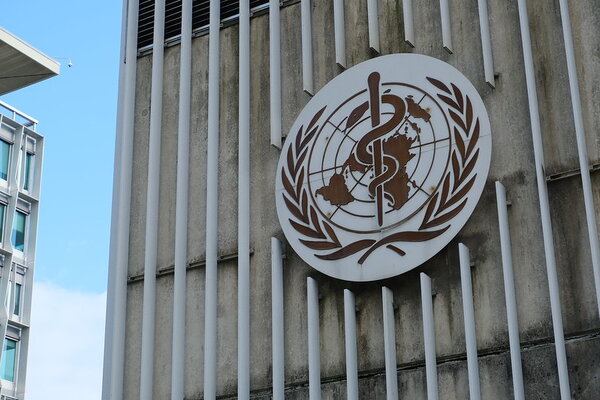
Der Exekutivrat zur Vorbereitung der jährlichen Weltgesundheitsversammlung im Mai hat getagt und die vielfältigen Herausforderungen der Weltgesundheitsorganisation und ihrer Mitglieder verdeutlicht
Ein Schlüsselthema, das erneut zu Spannungen führte und die Prinzipien von Gleichheit und Gerechtigkeit weiterhin negiert, sind die Verhandlungen um den Pandemievertrag, der im Mai zum Abschluss kommen soll. Dr. Tedros forderte die Länder auf, ihre Anstrengungen zu verdoppeln, um Lösungen zu finden, mit denen alle leben können. Während der globale Süden den Austausch von Wissen und Ressourcen fordert, wünscht der globale Norden den Schutz des bestehenden Rahmens für geistiges Eigentum und die Wahrung der Interessen der Pharmaindustrie. Viele der diskutierten Themen waren von der Frage und dem Ringen nach mehr Gerechtigkeit geprägt. Der Klimawandel, steigende Staatsverschuldungen, die Zunahme der weltweiten Armut, die mangelhafte Umsetzung einer allgemeinen Gesundheitsversorgung (Universal Health Coverage) und die andauernde Konfrontation von ca. 2 Milliarden Menschen mit katastrophalen Gesundheitsausgaben erfordern neue Strategien. Hinzu kommt die Unterfinanzierung der WHO und die Sorge, dass Partnerschaften mit externen Organisationen wie mit Gavi oder mit der Gates Foundation notwendig sind und zu einem noch grösseren Einfluss von Nichtmitgliedern auf die Prioritäten der WHO führen. Auch die Etikettierung des Rechts auf sexuelle und reproduktive Gesundheit als politisches Thema sowie die Konflikte um Gaza und die zunehmende Arbeitsbelastung der WHO in humanitären Notlagen, führten zu hitzigen Auseinandersetzungen.

An der Sitzung des Exekutivrates der WHO im Januar 2024 war die Umsetzung der universellen Gesundheitsversorgung (UHC) ein weiteres Hauptthema. Trotz stagnierender Ergebnisse vor allem im Bereich der Finanzierung hält die WHO und ihre Mitgliedstaaten an der bisherigen Strategie fest, die sich nach Ansicht von PHM (Peoples's Health Movement) als fehlerhaft erwiesen hat und nicht zum gewünschten Ziel führen wird. Es mangelt vor allem an öffentlichen Versorgungseinrichtungen und so kommt die Einführung der Krankenversicherungsmodelle mehrheitlich privaten Leistungserbringern zugute. Ein weiteres Problem ist, dass die Einführung der "Health Impact Investment Platform" zur Bereitstellung von Krediten für den Aufbau einer medizinischen Grundversorgung in den Ländern mit niedrigem und mittlerem Einkommen, die Schuldenlast dieser Länder noch weiter vergrössert. Was diese Länder jedoch von den WHO-Mitgliedern benötigen, ist ein Schuldenerlass, der ihnen mehr Spielraum geben wird, die medizinische Grundversorgung zu ihren eigenen Bedingungen zu stärken, davon ist PHM überzeugt.
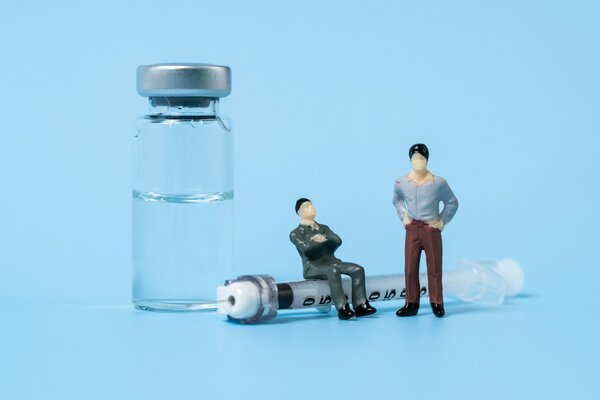
Die EU-Strategie betont ausdrücklich das Ziel eines weltweit gerechten Zugangs zu erschwinglichen und hochwertigen Gesundheitsprodukten und die Unterstützung von lokalen Arzneimittelproduktionen. In der Praxis blockieren die EU-Länder jedoch alle Versuche der Weltgesundheitsorganisation (WHO) und der Welthandelsorganisation (WTO), Gesundheitstechnologien mit Herstellern aus Ländern mit niedrigem und mittlerem Einkommen zu teilen, so die Kritik von Oxfam. Die NGO forderte die EU erneut auf, nicht länger das Thema der Patentrechte zu verschweigen und die Augen vor dem ungleichen Zugang zu Impfstoffen und Arzneimitteln zu verschliessen, sondern die Gesundheit über die Interessen von Big Pharma zu stellen.

"The Council today approved conclusions on the 'EU Global Health Strategy: Better health for all in a changing world', in which it reaffirms the leading role of the EU and its member states in advancing global health. The Council acknowledges that physical and mental health is a human right and that health is a prerequisite for sustainable development. The Council welcomes the communication of the European Commission on the EU Global Health Strategy and further emphasises that the EU and its member states must play a leading role in ensuring that global health remains at the top of the international agenda. Global health requires effective multilateralism and inclusive multistakeholder partnerships, and is an essential pillar of EU external policy."
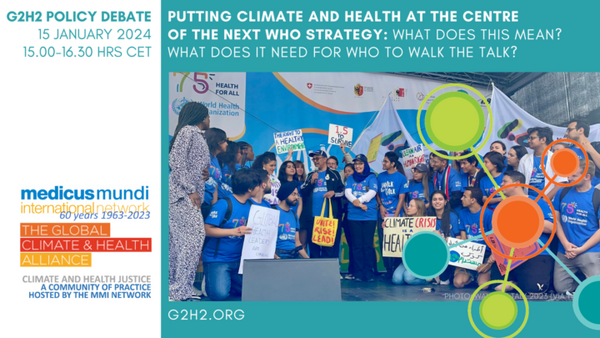
Recording of the session: G2H2 policy debate, 15 January 2024 organized by the MMI Network and partners
"In 2024, climate change and health will be prominently on the agenda of the WHO governing bodies, with a resolution proposed by the WHO member states Core Group Climate Change and Health, and with the WHO secretariat’s proposal to put the “response to climate change, the greatest health threat of the 21st century” at the centre of its draft strategy (General Programme of Work) for the next years, as one of six strategic objectives."
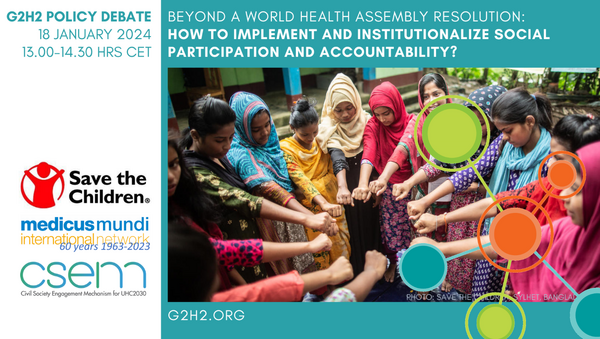
Recording of the session: G2H2 policy debate, 16 January 2024 organized by the MMI Network and partners
"Since the launch of the WHO Handbook on Social Participation for UHC in 2021, there has been growing political leadership among WHO Member States on social participation, leading to the proposal of a resolution to be adopted by the 77th World Health Assembly in May 2024. The agenda of social participation – and social accountability – is strongly supported by a range of civil society actors, including those who engaged in dialogues with the WHO Director General in 2021 and continue to participate in consultations with the Member State co-chairs of the proposed resolution, Slovenia and Thailand."

"The Coronavirus disease (COVID-19) pandemic has revealed the fragility of pre-crisis African health systems, in which too little was invested over the past decades. Yet, development assistance for health (DAH) more than doubled between 2000 and 2020, raising questions about the role and effectiveness of DAH in triggering and sustaining health systems investments. This paper analyses the inter-regional variations and trends of DAH in Africa in relation to some key indicators of health system financing and service delivery performance. (...) We conclude that the current architecture of official development assistance (ODA) is no longer fit for purpose. It requires urgent transformation to place countries at the centre of its use."
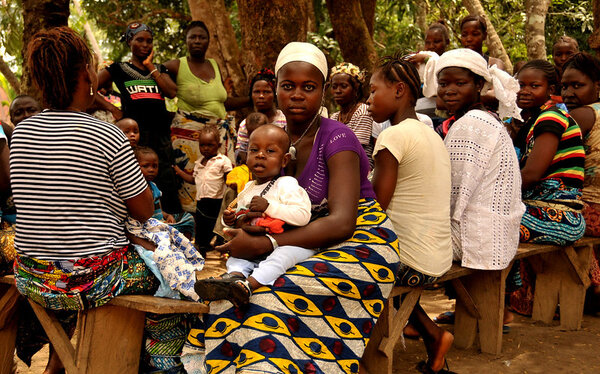
The 13 research articles, innovation and practice reports and commentaries presented in this supplement provide concrete examples, ideas and reflections that add to our understanding of external assistance for health.
"As we revisited our April 2022 announcement of this special issue on Rethinking External Assistance for Health, we were struck by the increasing relevance of the themes that were raised (Shroff et al., 2022; HPP call for abstracts 2022). We are no longer speaking about the potential effects of the economic crisis triggered by COVID-19, but rather how countries and households are now experiencing the realities of fiscal tightening, increased sovereign debt, inflation and shifting geopolitics (International Monetary Fund, 2023). Reflecting these pressures and changing dynamics, questions around the functions of external assistance for health and the forms it takes are high on the agendas of both donors and recipient countries."

"Wemos, Health Action International (HAI), Innovarte and Knowledge Ecology International (KEI) are happy and proud to announce that they are forming a consortium for the next four years to improve global access to medical innovations. The project, called ‘Enabling Access: Medical Innovations for All’, focuses on creating an enabling environment to increase access to medicines, particularly for low- and middle-income countries. The project is funded by Unitaid. - Lack of access to many medicines, for example for hepatitis C, HIV and tuberculosis, has been a major problem for low- and middle-income countries for decades."
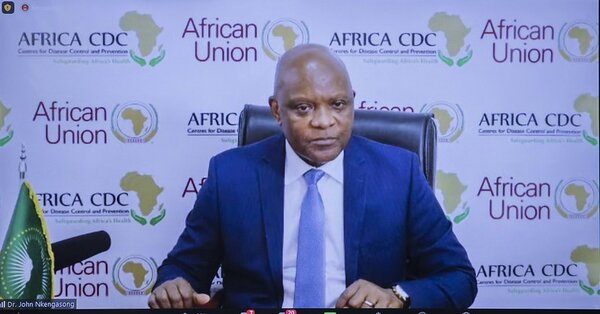
"2023 was an important year for public health in Africa and a busy year for Africa CDC. Most notably, last year saw Africa CDC take steps in effecting its status as an autonomous institution of the African Union (AU), which ushered in greater operational independence, a more robust governance structure with the inclusion of a Committee of Heads of State and Government, an expanded membership of its governing board, and the additional mandate of declaring public health emergencies of continental security. Furthermore, 2023 marked the appointment of the first Director-General of Africa CDC for a four-year term. In this blog, we detail four notable areas of work of the Africa CDC in 2023 and propose four areas of focus for 2024."
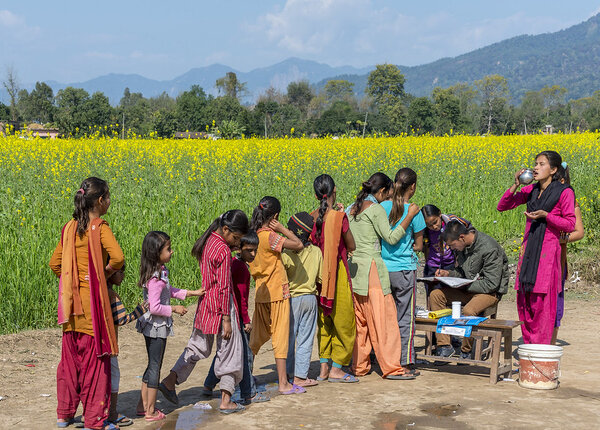
"On Dec 15, 2023, WHO updated its list of neglected tropical diseases (NTDs) to add noma. NTDs are conditions that are mostly prevalent in low-income and middle-income countries and that disproportionately affect women and children. The inclusion of noma on the list of NTDs is long overdue, and marks the first step in prioritising the disease in treatment, policy, funding, and research. (...) Without treatment, noma is fatal in approximately 85% of cases (due to sepsis or severe dehydration and malnutrition) but, if detected early, it can be treated with antibiotics."
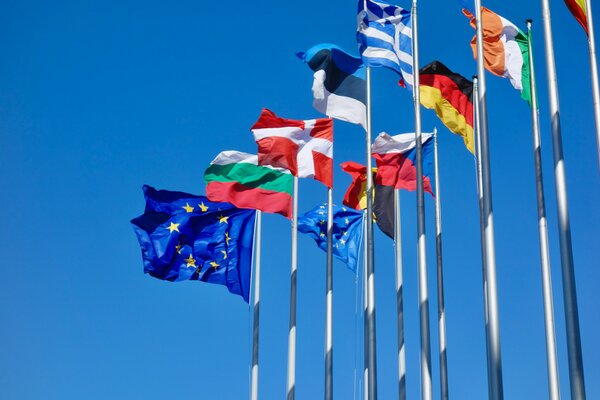
"More than 40 former heads of state and leading global health advocates have urged world leaders not to waste a unique opportunity to save millions of lives as negotiations stall on a new global pandemic accord. In an open letter, published four years after the World Health Organization declared covid-19 a global health emergency, the 40 influential figures warned that the world’s leaders were looking increasingly unlikely to agree on a new, legally binding agreement intended to prevent and prepare for a future pandemic."
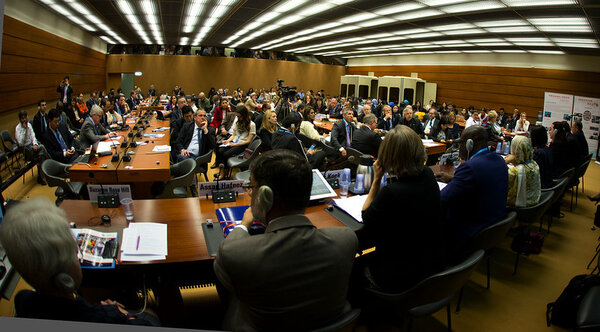
Eine Allianz aus konservativen Mitgliedsstaaten der WHO und rechtsgerichteten US-Organisationen hat das Verfahren zur Aufnahme einer Organisation, die für sich reproduktive Gesundheit einsetzt, in die Weltgesundheitsorganisation (WHO) gestoppt. Die WHO kann"offizielle Beziehungen" mit nicht-staatlichen Akteur:innen eingehen, die sich nachhaltig und im Interesse der WHO engagieren. Im Falle der Organisation "Center for Reproductive Rights (CRR)", die sich in den USA, Afrika, Asien und Lateinamerika für den Zugang von Frauen und Mädchen zu reproduktiven Gesundheitsdiensten einsetzt, wurde diese Aufnahme aufgrund der massiven Einwände vorerst gestoppt. Man drohte der WHO mit einem Finanzierungsstopp unter einem zukünftigen US-Präsidenten. Neben Russland, dem Jemen haben sich auch 47 afrikanische Staaten dahingehend geäussert, dass die WHO die Kultur und die Werte ihrer Mitgliedstaaten mit der Aufnahme dieser Organisation nicht respektieren würde. Mexiko warnte hingegen, dass die Autorität des WHO-Sekretariats mit dieser Aktion untergraben wird.
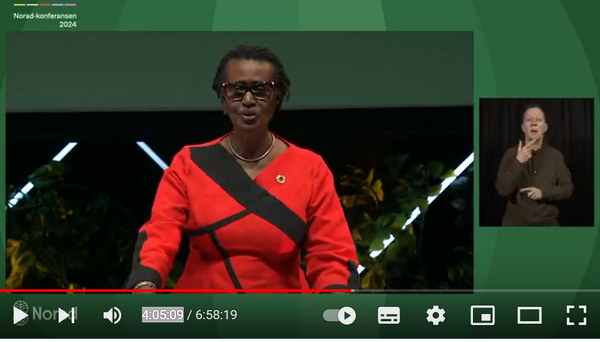
"OSLO/GENEVA, 1 February 2024—At a conference hosted in Oslo by the Norwegian Agency for Development Cooperation (Norad), UNAIDS Executive Director, Winnie Byanyima, has made an impassioned call to all international partners to support women and girls from marginalized communities at the frontlines of the defence of human rights. Only by ensuring that the rights of everyone are protected can the world ensure that the health of everyone is protected, and that the Sustainable Development Goals are achieved."
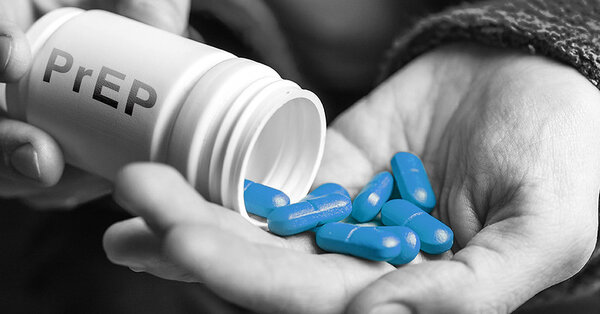
In Deutschland wird das unter dem Namen Prep bekannte HIV-Mittel knapp. Die Aidshilfe spricht von "fatalen Folgen".
"In Deutschland ist ein von Zehntausenden Menschen genutztes Medikament zum Schutz vor einer HIV-Infektion derzeit nicht ausreichend verfügbar. Mehrere Hersteller der sogenannten Präexpositionsprophylaxe, kurz Prep, haben Lieferengpässe gemeldet, wie das Bundesinstitut für Arzneimittel und Medizinprodukte (BfArM) mitteilte. Seit dem Jahreswechsel zeige sich "eine Entwicklung hin zu einer eingeschränkten Verfügbarkeit" des Medikaments."
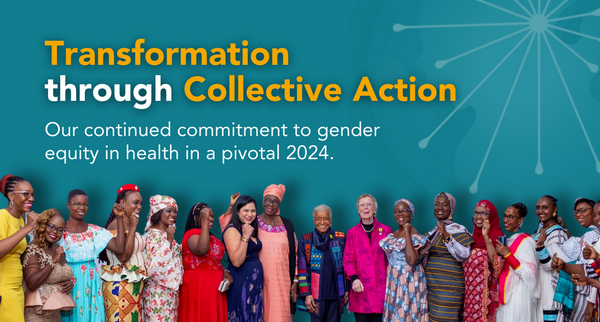
Our continued commitment to gender equity in health in a pivotal 2024
"As we kick off this new year, we are on the march to the celebration of 10 years since Women in Global Health launched in 2015. What an inspiring, unstoppable journey it has been. It is a privilege to be part of a movement as wide and powerful as ours. Looking at everything we have achieved in less than 10 years, I know there are still mountains to climb and when we get there, we will see some spectacular wins ahead for gender equity in global health. The power of our movement is demonstrated by our collective action and by the number of women from all regions who feel inspired to join us. We crossed a historic milestone of having 50 Chapters around the world in 2023, welcoming 14 new chapters last year, from Singapore to Benin, from Rwanda to Austria, from Argentina to Iraq."
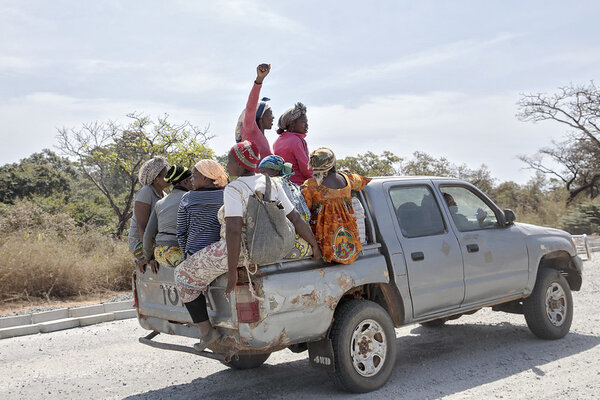
Later diagnoses and lack of data mean women spend 25% longer than men in poor health, World Economic Forum report finds
"Closing the gender health gap could add at least $1tn (£790bn) a year to the global economy by 2040, according to the first report to quantify the economic opportunities of investing in women’s wellbeing. Every $1 invested to improve women’s health could generate $3 for the economy as quality of life improves and women are able to actively participate in the workforce. It could lead to an extra seven healthy days each year for every woman, or more than 500 days over a lifetime."

Researchers estimated likely number of rape-related pregnancies in 14 states with near-total abortion bans since Dobbs ruling
"Nearly 65,000 rape-related pregnancies likely occurred in the 14 US states with near-total abortion bans following the US supreme court’s 2022 Dobbs decision – yet just 10 legal abortions are performed monthly on average in these states, researchers found in a new analysis. The data demonstrates that abortion bans likely make it impossible for most victims of rape to obtain abortions in their home states, even for the minority of people who live in states with exemptions for rape, researchers said."
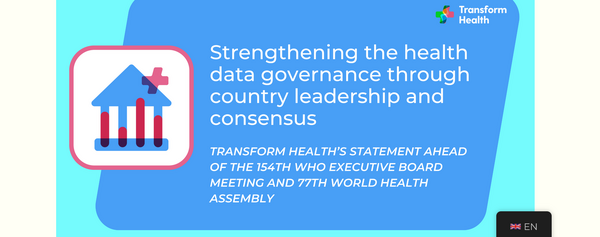
Strengthening the health data governance through country leadership and consensus
"Transform Health and partners are calling for stronger health data governance regulation. Toward this, we are urging governments to develop and endorse a set of minimum components for health data governance regulations. Through their endorsement as part of a World Health Assembly resolution, this would help establish that consensus, alignment and agreement across countries around what is needed. Importantly, they would serve as a resource and benchmark for governments as they strengthen their national approaches, whilst also establishing a level of harmonisation across countries, which is important to facilitate cross-border data sharing with the needed protections in place."

World Health Organization says lower-income countries will record the biggest proportional increases
"Global cancer cases are predicted to rise by more than 75% by 2050, according to the World Health Organization. Latest figures from the WHO’s cancer arm, the International Agency for Research on Cancer, makes plain the growing burden of cancer, rising from 14.1 million new cases and 8.2 million deaths worldwide in 2012 to 20 million new cases and 9.7 million deaths a decade later. The IARC predicts there will be more than 35 million new cancer cases by 2050, an increase of 77% from 2022 levels, and that deaths will have nearly doubled since 2012 to more than 18 million."

Swiss TPH "Improving access to healthcare in low- and middle-income countries (LMICs) is a global issue. On 8 February 2024, Swiss TPH brings together experts and key players from the pharmaceutical industry, academia and Product Development Partnerships to assess current strategies and progress and to foster synergies between partners for more effective product development, licensing and implementation. Join us for this multidisciplinary networking event organised in collaboration with Healhcare Dialogues."

Graduate Institute - Global Health Centre "Randi Isaksen, news-anchor at RECOVERY CHANNEL, struggles to help her sister in a broken mental health system. Told through dueling prisms of documentary and narrative storytelling, Filmmaker Ellen Ugelstad unravels the complex issues of mental health, human rights and the use of coercion. Mental health is a growing priority in global health policy and human rights discussions. This one-night-only film screening will dissect this intersection and address the human rights violations witnessed in today's mental health care system and practices."
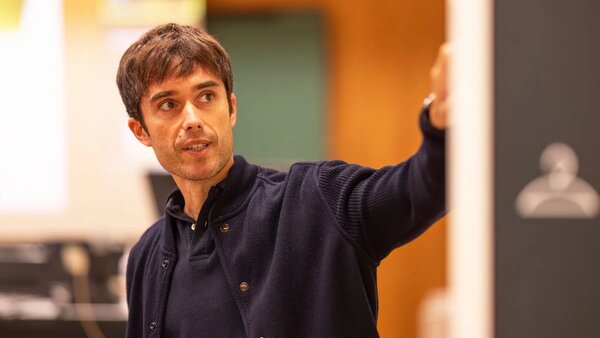
Swiss TPH The course provides a short introduction to key concepts of health economics, such as public goods, externalities and supply and demand, as applied to health and the health sector. Based on the WHO health system performance framework, the course then discusses health financing – its functions, financing systems, payment mechanisms, Overseas Development Assistance, the effect of health system organisation on financing, measuring performance, digitization in health financing and how financing relates to other building blocks of a health system. These factors are used to evaluate the strengths and weaknesses of a country’s level and structure of health financing.

Medicus Mundi Switzerland Collectively, young people have urgent and vast needs for policies and programs that ensure their improved sexual and reproductive health and rights (SRHR). There are numerous innovative initiatives and projects to improve young people’s sexual and reproductive health and rights and we want to hear about them.
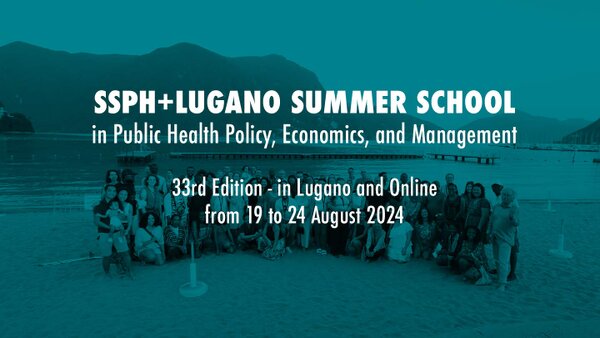
SSPH+ Lugano Summer School At the SSPH+ Lugano Summer School in Public Health Policy, Economics, and Management practitioners, researchers, and graduate students come together from all over the world for a unique learning experience focused on public health impact. The education obtained and networks created serve as an opportunity to reduce and prevent the gap between public health theory and practice. This year, we will gather in Lugano and online from 19 to 24 August 2024 offering 16 courses, 2 plenaries and several networking events. Each highly interactive course focuses on mutual learning for change and uses an active and engaged teaching style to help participants reflect on, develop, and expand transformational ideas. Information about fees, participation modality, and registration are available on our website: https://www.ssph-lugano-summerschool.ch/enroll. If you have any further question, you can contact us at info@ssph-lugano-summerschool.ch